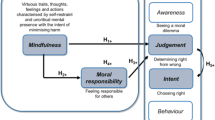Abstract
The distinction between egoistic and altruistic motivation is firmly embedded in contemporary moral discourse, but harks back too to early modern attempts to found morality on an egoistic basis. Rejecting that latter premise means accepting that others’ interests have intrinsic value, but it remains far from clear what altruism demands of us and what its relationship is with the rest of morality. While informing our duties, altruism seems also to urge us to transcend them and embrace the other-regarding values and virtues constitutive of a good life. This rather wide conception of morality may strike us today as too demanding. At the same time, however, currently popular impartialist accounts of morality can disrupt much everyday altruism in their insistence that each person’s interests are weighed precisely equally. Having sketched this problematic of altruism, the second half of this Introduction outlines the arguments of the four papers and review essay in this collection, each of which, in a different way, negotiates the difficult relationships between egoism, altruism, morality and impartiality.
Similar content being viewed by others
Author information
Authors and Affiliations
Rights and permissions
About this article
Cite this article
McBride, C., Seglow, J. Introduction: Egoism, Altruism and Impartiality. Res Publica 9, 213–222 (2003). https://doi.org/10.1023/A:1026225103778
Issue Date:
DOI: https://doi.org/10.1023/A:1026225103778




